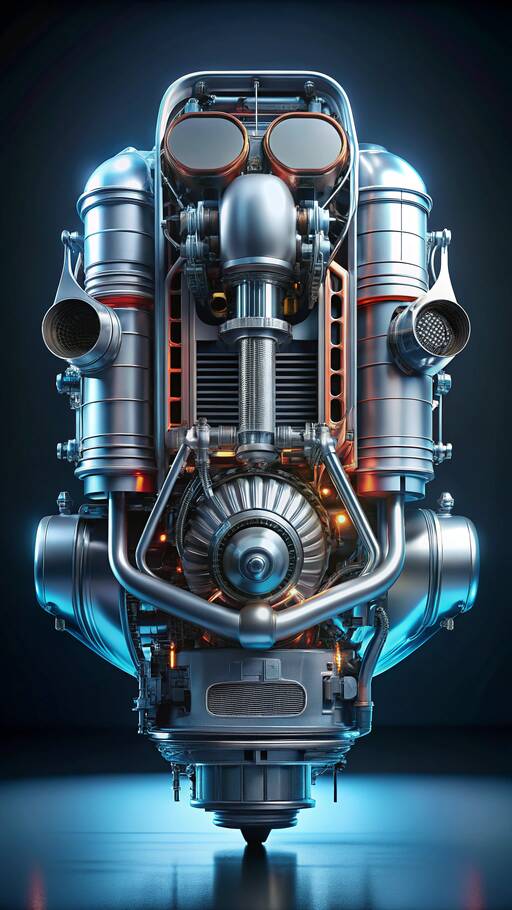
Porsche's engine uses the traditional intake, compression, power, and exhaust strokes but inserts an extra compression and power stroke, amounting to a 1080-degree combustion cycle. This cycle is achieved through ports in the cylinder wall that facilitate scavenging and introduce air for a second compression stroke. The crankshaft seems to employ a mechanism to vary the piston stroke within a range of 83 to 118 millimeters.
A unique aspect of this design is the set of ports near the cylinder's base, accessible only when the piston reaches its lowest point on the longest stroke. This adaptation accompanies the transition from a variable 83-mm intake stroke to a full 118-mm power stroke, essential for uncovering these ports. The ports likely introduce pressurized air, aiding in expelling exhaust gases while filling the cylinder with fresh air.
The process begins with standard intake and compression, followed by a variable power stroke that allows the piston to lower enough to interact with the bottom ports. A rush of air from these ports is key to the cycle's rapid scavenging phase. As the piston ascends again, coinciding with fuel injection, a new compression stroke occurs, succeeded by a standard power and exhaust stroke, thus completing three crankshaft turns.
While boasting double power strokes, the secondary stroke—after quick scavenging—may not match the first in power. Furthermore, the impact on thermal efficiency remains unclear, with additional friction potentially offsetting any gains. Though potentially offering benefits through downsizing, without further details from Porsche, this concept remains an intriguing enigma.
Porsche's six-stroke engine leverages additional strokes and variable piston travel, promising unique innovations in power cycles. Yet, questions about efficiency and performance leave its practicality uncertain. The automotive world awaits further revelations from Porsche on this striking endeavor.
 | I'm not convinced this six-stroke engine will actually lead to better performance or efficiency. It sounds great on paper, but in practice, it might fall short. |
 | Porsche's patent is intriguing, but we need more concrete information before jumping to conclusions about its viability. |
 | This could be revolutionary for the automotive industry! If Porsche pulls it off, we could see a big leap in engine technology and performance. Exciting times ahead! |